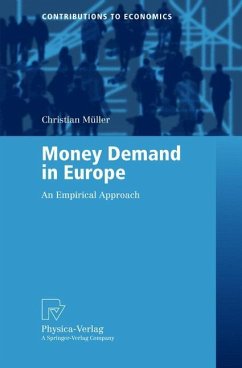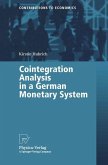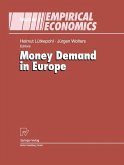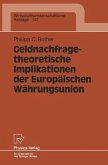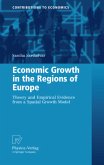The EURO has now been in place for more than two years, but only the future will tell if the ECB policy proves successful in the long-term. Whether the monetary authorities have sufficient information, and more important, the right information to manage the EURO currency, has been an open question and will remain so for some time to come. This book discusses the economic principals underlying the demand for money as a potentially useful relationship for policy makers, and the possibilities to recover its properties by means of multivariate time series analysis. It applies the outcome of these considerations to the whole EURO area as well as to France. While for the aggregate, a money demand function can be specified and be shown to have good forecasting properties, this fails in the French case. This book puts forth economic arguments that attempt to explain this. At various steps of the analysis, special attention is given to breaks in time series data. The presentation carefully outlines all means that have been used to cope with shifts in coefficients of the cointegration relations. A separate chapter is dedicated to testing for unit roots in time series with level shifts. This includes detection of break points, provision of test statistics, graphical evaluation of the empirical models and illustration of the procedure with a large set of international macroeconomic data.
The first of January 1999 marked the beginning of a macroeconomic experi ment without precedent in modern history. For the first time eleven European countries agreed to abolish their local currencies in favour of a single one, the Euro. Not surprisingly, the necessary preparatory process has been accompa nied by an intensive discussion about the best way to manage the new Euro currency properly. To spur on that discourse was the principal motivation for this thesis. The introductory chapter attempts to bridge economic and econometric views on money demand analysis. It should help to motivate estimation proce dures and to standardize interpretation techniques, hopefully initiating further discussion in that direction. It intends to make the following chapters more accessible. In this thesis I approach the general subject in two principle ways. In chapter 3 I consider technical issues dealing with time series with shifts in the mean. Two years ago, Helmut Liitkepohl and Pentti Saikkonen asked me to join in on a related project which became the cornerstone of this chapter. I have very much appreciated the highly instructive collaboration with both these scholars.
Hinweis: Dieser Artikel kann nur an eine deutsche Lieferadresse ausgeliefert werden.
The first of January 1999 marked the beginning of a macroeconomic experi ment without precedent in modern history. For the first time eleven European countries agreed to abolish their local currencies in favour of a single one, the Euro. Not surprisingly, the necessary preparatory process has been accompa nied by an intensive discussion about the best way to manage the new Euro currency properly. To spur on that discourse was the principal motivation for this thesis. The introductory chapter attempts to bridge economic and econometric views on money demand analysis. It should help to motivate estimation proce dures and to standardize interpretation techniques, hopefully initiating further discussion in that direction. It intends to make the following chapters more accessible. In this thesis I approach the general subject in two principle ways. In chapter 3 I consider technical issues dealing with time series with shifts in the mean. Two years ago, Helmut Liitkepohl and Pentti Saikkonen asked me to join in on a related project which became the cornerstone of this chapter. I have very much appreciated the highly instructive collaboration with both these scholars.
Hinweis: Dieser Artikel kann nur an eine deutsche Lieferadresse ausgeliefert werden.

